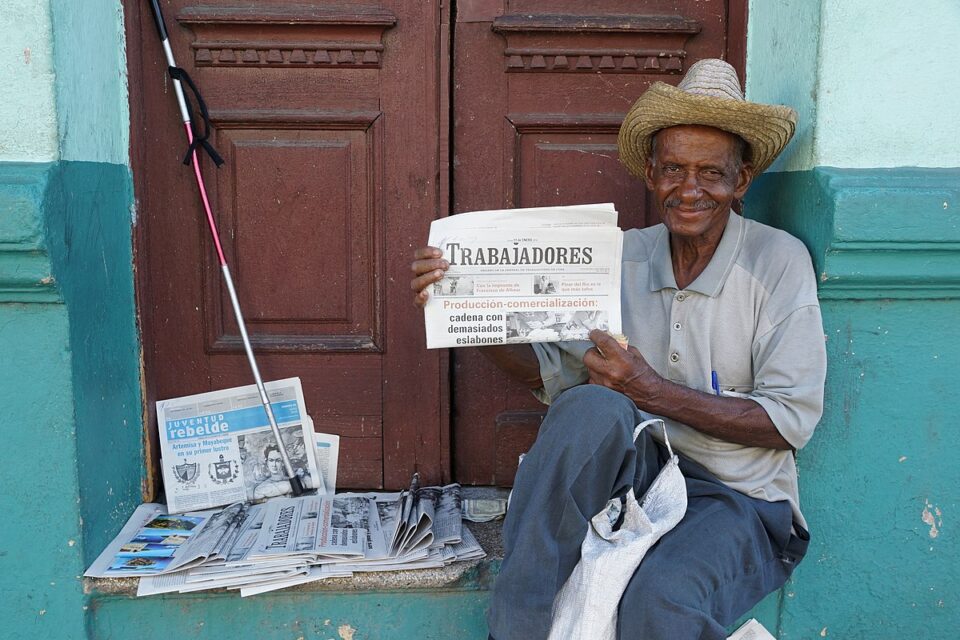Writers Have Survived Threats, Exile, Imprisonment
(In Spanish, at < http://tinyurl.com/yftf4z62 >
Morgan State Looks to More Ties with Cuba
Monica Richardson Lands at USA Today as Sr. V.P.
Gannett Drops ‘Doonesbury,’ but Gossip Is Off the Mark
Black Press Gives Deadly Abuse Case Scant Coverage
Israel Challenges George Polk Award to Palestinian
Layoffs Run Amok, but These Outlets Are Still on Top
Biden: Some in Press Say They’ll Leave if Trump Wins
Short Takes: Chicago Mayor Brandon Johnson; Wendy Williams; broadcasters’ diversity reports; S.C. State’s proposed erasure of history, social studies majors; “Black Journalists on Journalism” podcast; Mehdi Hasan; neo-Nazis threaten reporter; racist image on Oregon station; new director of Society of Environmental Journalists; documentary series on homelessness; new leader for Joint Center for Political and Economic Studies;
Sherrilyn Ifill and ‘Charlamagne tha God’; Travis Pope; Ukrainian journalists two years after invasion; significance of radio in Africa; Mexican president and reporter’s phone number; Mozambique threats; surveillance in Zimbabwe; targeting journalist in Nigeria; killing of Myanmar journalist
Homepage photo: A man selling the newspaper Trabajadores in the town of Santiago de Cuba, Cuba, in 2016. (Credit: Peter de Ruier/Wikimedia Commons)
Support Journal-isms
Writers Have Survived Threats, Exile, Imprisonment
By Julio A. Rojas (pictured)
“Cuba’s new Penal Code, which was approved in May but came into force on 1 December, risks further entrenching long-standing limitations on freedom of expression and assembly and is a chilling prospect for independent journalists, activists, and anyone critical of the authorities,” Amnesty International declared in December 2022.
A little over a year later, Amnesty’s fears have come true.
 Independent journalists on the island have been threatened with prison, and some reporters have been forced into exile. Press freedom organizations have called Cuba one of the worst countries in the hemisphere — if not the worst — repressing freedom of expression.
Independent journalists on the island have been threatened with prison, and some reporters have been forced into exile. Press freedom organizations have called Cuba one of the worst countries in the hemisphere — if not the worst — repressing freedom of expression.
All this is in keeping with the tenets of the Cuban Revolution, led in 1959 by the late Fidel Castro, who ruled the country from 1959 to 2008. “The father of the Cuban revolution imposed a climate of censorship and used often violent methods to prevent the circulation of any news and information at variance with that provided by the state media,” Reporters Without Borders wrote in 2016.
Still, there were small breakthroughs. In 2014, the Netherlands-backed organization RNW Media created El Toque Cuba, which became one of Cuba’s main independent media platforms, overcoming a multitude of obstacles to do so. El Toque was significant in adding to the diversity of voices within the digital media that publish for Cubans.
But by August 2022, the political police had pressured a group of nine journalists to desist from collaborating.
Cuba is a country without anything resembling journalism. It is a state that practices a cruel surveillance of communications, including the internet, and the government has sent an undetermined number of journalists into exile. Its repression machinery does not stop with threatening, persecuting and imprisoning all those who dissent from government policies.
The international community must continue strong surveillance of the island’s regime and apply serious international sanctions for repressing freedom of expression and information.
Send human rights rapporteurs who do real work. Don’t be influenced by the smokescreen hiding the lies. In international human rights forums, demand the release of political prisoners and independent journalists.
One of the labels most used by harassed Cuban reporters is “#Journalism is not a crime.”
Before approval of the new Penal Code, there was Decree Law 370, specifically section i) of Article 68, which considers it a violation to “disseminate, through public networks of transmission of data, information contrary to social interest, morality, good customs and integrity of people.” The ambiguity of the section is convenient for the Government; The fines for offenders are 3,000 CUP (Cuban peso), or $120 U.S.
Several journalists have said that under the new penal code, during interrogations, they were threatened with prison under article 143 of the penal code of 2022. It establishes sentences of four to 10 years for those who “on their own or in the name of non-governmental organizations, international institutions . . . support, encourage, finance, provide, receive or have in your possession funds, resources material or financial, in order to finance activities against the State and its constitutional order.”
Some of the threatened communicators tell me that their independent status is what differentiates them from government journalists, and they like the difference. They say those who work for the government are spokespersons for a regime without freedom of expression.
They cherish the value we have as independent communicators. Despite threats of going to prison and in some cases, enduring beatings, we continue reporting violations by the regime of all freedoms.
Independent journalists are truthful in our work. Our sources are reliable and take the risk of giving us accurate information about the corruption that exists within all levels of government.

I cannot fail to mention that several of my own works uncovered diversion of resources in a bus terminal, and in the Orthopedic Hospital Frank País, a warehouse full of children’s toys and candy.
The Frank País Orthopedic Hospital is described as “the largest and most complete hospital complex in the world dedicated to orthopedic, traumatological, reconstructive and rehabilitative surgery of the osteomyoarticular system, in addition to being the headquarters of the Latin American School of Orthopedics and Traumatology.”
Everything was ruined by the poor management of the premises. In some cases those responsible were punished and expelled from their workplaces by the Communist Party, a hospital nurse says.
The party organization lamented that that they had to find out about these unfortunate events and penalize those responsible because of independent journalists, “enemies of revolution.”
Julio Antonio Rojas is an independent journalist in Cuba.
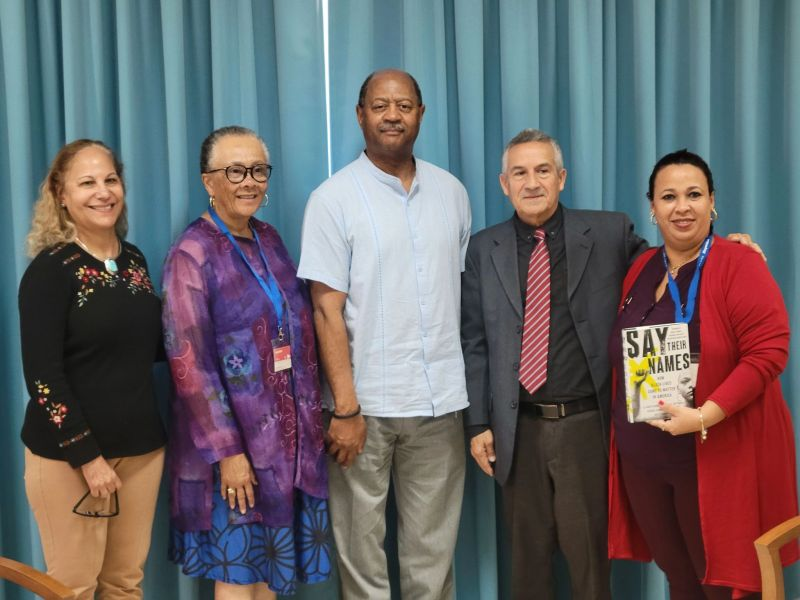
Morgan State Looks to More Ties with Cuba
Morgan State University’s School of Global Journalism & Communication, which took students and faculty to Cuba under founding dean DeWayne Wickham, is considering another collaboration.
“On Wednesday, Michael Cottman, SGJC assistant to the dean for special programs and projects, and I met with Mr. Juan Rodriguez Cabrera, President of the prestigious Cuban Book Institute which oversees the Havana International Book Fair, Cuba’s largest and most popular annual cultural event,” Jackie Jones, dean of the school, wrote on LinkedIn.
“It was an opportunity to discuss a wide range of topics and for Prof. Cottman to speak about his appearance at this year’s book fair, at which he was one of just 2 U.S. authors presenting. We also discussed a potential collaboration with Morgan State University’s School of Global Journalism & Communication.”
Jones did not say whether press freedom issues were among those discussed. After a research visit in December 2022, she said, “It was a brief and jam-packed schedule, so we didn’t have time to explore more contemporary issues. We hope to have more time on a subsequent trip.”
Last June, the Cuban government issued a news release celebrating Wickham and a delegation he led.
Salvador Valdés Mesa, Political Bureau member and vice president of the Republic, “praised the variety of social, civil and racial issues that Mr. Wickham addresses and actively acts upon on a permanent basis and thanked him for his work in favor of Cuba-U.S. relations and against the blockade, ‘the most serious obstacle to Cuban can-do nowadays’, he stressed,” the release said. Wickham called the meeting “a great honor” and “was conferred the status of Guest Professor by the University of Havana.” There was no indication that issues of press freedom or human rights were raised.
Wickham later released the winter 2023 issue of the Morgan Global Journalism Review, centered on Cuba. Articles include “Little Known Afro-Cuban Leaders that African Americans Should Know,” by Wickham, “Cuba’s New Constitution and Supreme Court,” by Elaine Jones and Wade Henderson, and “My Up-Close Look at the Damage Done by the U.S. Blockade” by Cottman.
- 14ymedio: Cuba’s Kangaroo Courts Strike Again — Finds Professor Alina Barbara Lopez Guilty of ‘Disobedience’ (Nov. 30)
- Francisco Acevedo, Havana Times: A Congress of Journalists in Cuba? (Nov. 13)
- Ed Augustin, the Guardian: As independent media blossoms in Cuba, journalists face a crackdown (Jan. 20, 2023)
- Elaine Díaz, Global Investigative Journalism Network: 14 Independent News Sites Changing Cuban Journalism (April 4, 2018)
- Barbara Gutierrez, University of Miami: How free is a journalist’s reporting in Cuba? (April 10)
- Inter-American Press Association: IAPA denounces growing repression in Cuba before the IACHR (2021)
- Journal-isms: The Embargo Made Them Do It (Dec. 6)
- Journal-isms: Cuban Agents Said to Stalk Exiled Journalist (Oct. 18) (second item)
- Journal-isms: A Day for Journalists Who Fled for Their Lives: Cubans, Ethiopians, Southeast Asians Are Just a Few (Nov. 5)
- Journal-isms: Press Group Scores Nicaragua, Cuba, Venezuela (Nov. 18) (scroll down)
- Journal-isms: U.S. Media Downplay Threats to Latin Colleagues (June 11, 2022)
- Edith M. Lederer, Associated Press: UN votes overwhelmingly to condemn US economic embargo on Cuba for 31st year and urge its lifting (Nov. 2)
- Daniel Marans, Huffington Post: Cuban-American Journalists Warn Against Romanticizing Fidel Castro (Nov 26, 2016)
- Marti News: Cyber attack on the Cuban Institute of Freedom of Expression and Press (Feb. 16)
- Organization of American States: Annual Report of the Inter-American Commission on Human Rights — Cuba, 2022 (PDF)
- Rosa María Payá and David E. Hoffman, George W. Bush Presidential Center: Championing Freedom in Cuba (Oct. 31, 2022)
- Tiffany Pham, Forbes: How She Did It: Yoani Sánchez Launches Cuban News Outlet 14ymedio (Nov. 30, 2014)
- Radio Marti: Mother of 11J prisoner denounces beating of her son in prison (July 5, 2022)
- Reporters Without Borders: Cuba’s Media Landscape
- Eugene Robinson, Washington Post: A win for Cuba’s people (Dec. 18, 2014)
- Eugene Robinson, Washington Post: Cuba Begins to Answer Its Race Question (Nov. 11, 2000)
- Julio A. Rojas, Journal-isms: An Independent Afro-Cuban Journalist’s Statement to the Journal-isms Roundtable (Dec. 3)
- Dan Vera, American Prospect: New Day: The Intricate Dance of Being a Cuban American (Dec. 22, 2014)

Monica Richardson Lands at USA Today as Sr. V.P.
Monica Richardson, who in a surprise move stepped down this month as vice president for local news for the McClatchy Co., is joining the Gannett Co. “to lead USA TODAY’s award-winning newsroom as Senior Vice President effective April 1,” Gannett announced Friday.

The current leader of the newsroom, Editor-in-Chief Terence Samuel (pictured), will report to Richardson.
“Richardson will work closely to extend the reach of the Nation’s Newspaper and invigorate USA TODAY’s portfolio” and will report to the chief content officer, Kristin Roberts, the release said.
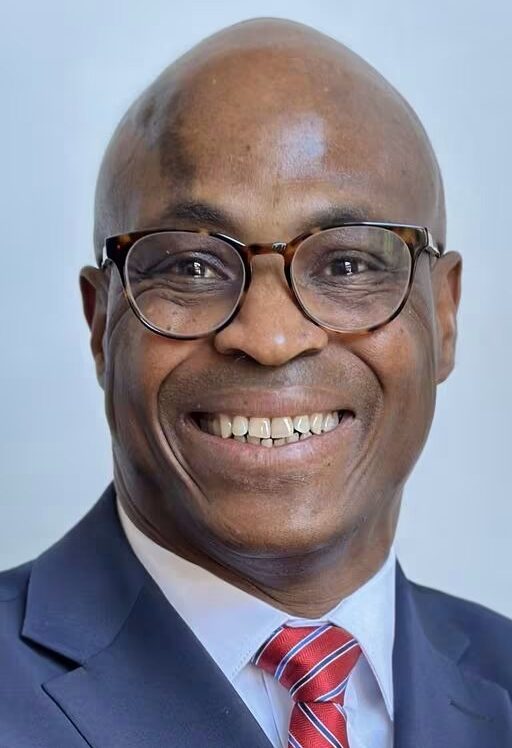 Separately, longtime newsroom leader Hollis R. Towns (pictured), who stepped down in April after 18 years with Gannett, was named vice president of content [and] editor in chief of Alabama Media Group (al.com), that company announced Thursday.
Separately, longtime newsroom leader Hollis R. Towns (pictured), who stepped down in April after 18 years with Gannett, was named vice president of content [and] editor in chief of Alabama Media Group (al.com), that company announced Thursday.
Towns had been a visiting professor and consultant at Fort Valley State University in his hometown of Fort Valley, Ga., spending “quite a bit of time working with students and helping the university to reimagine its Media Studies program,” Towns wrote on LinkedIn in October.
At Alabama Media Group, Towns replaces Kelly Ann Scott, who left in October to become editor in chief of the Houston Chronicle.
Gannett called Richardson, who became the first Black top editor at the Miami Herald when she began that job on Jan. 1, 2021, “a seasoned professional with a proven 30-year long track record of devising strategies for digital audience growth and leading cross divisional collaborations,” adding that “Richardson is primed to spearhead dramatic and long-term growth across the enterprise. Her various accolades include receiving two Pulitzer Prize honors as well as National Press Foundation Editor of the Year.”
The release also said Richardson would “translate a growing audience into a successful, diversified content monetization strategy to reestablish USA TODAY as the most relevant, far-reaching media organization in the country.”

(See https://www.washingtonpost.com/doonesbury/strip/archive/2024/2/18 for enlargement)
Gannett Drops ‘Doonesbury,’ but Gossip Is Off Mark
“Cracked did a whole article titled Conservative Newspaper Conglomerate Proved Their Opponents’ Point When They Banned This ‘Doonesbury’ Comic Strip,'” Brian Cronin wrote Thursday for CBR, which reports comics industry news.
“However, the reality is that the strip had already been dropped by all Gannett-owned newspapers weeks before this newest strip was released. Doonesbury, the first comic strip to win the Pulitzer Prize for Editorial Cartooning, was one of a number of newspaper comic strips to lose its spot in Gannett-owned newspapers due to a unified approach by Gannett towards the ‘funny pages’ of its newspapers. . . .”
Gannett spokesperson Audrey Pass messaged Journal-isms Wednesday, “A revitalization of our comics was announced and implemented over the last several months which includes Doonesbury. Refreshing our comics provides a consistent and modern presentation for our audience while incorporating beloved favorites. Sharing an example column which ran in the Arizona Republic when the announcement was made.”
Republic Executive Editor Greg Burton wrote, “Beginning Monday, Jan. 29, you’ll find the same number of weekday strips, 22, with a handful of comics replaced by ‘Jump Start,’ ‘Ziggy,’ ‘Crabgrass,’ ‘Crankshaft,’ ‘Baldo,’ ‘Frank & Ernest’ and ‘Born Loser.’ Sunday’s in-living-color comics section will be remixed by a few departures and the additions of ‘Peanuts,’ ‘Jump Start,’ ‘Ziggy,’ ‘Marmaduke,’ ‘Crankshaft,’ ‘Baldo,’ ‘Frank & Ernest’ and ‘Born Loser.’ (“Jump Start,” “Baldo” and “Crabgrass” are drawn by cartoonists of color, Robb Armstrong, Hector Cantú and Tauhid Bondia respectively.)
“To make way for the new, we must let go of a few beloved comics. The strips being replaced are ‘Andy Capp,’ ‘B.C.,’ ‘Carpe Diem,’ ‘Doonesbury,’ ‘Drabble,’ ‘F Minus,’ ‘Fred Basset,’ ‘Macanudo,’ ‘Mother Goose,’ ‘Mutts,’ ‘Rose is Rose,’ “The Other Coast’ and ‘Wallace the Brave.’ “
As the outcry over the missing Feb. 18 “Doonesbury” demonstrates, however, Trudeau’s strip is not just another comic strip.
As Jon Kalish reported for NPR in 2021 in commemorating the strip’s 50th anniversary, “Although Trudeau has opposed most American military interventions of the last 50 years, he developed great respect for the men and women who have served in the all-volunteer armed services. Col. William Nash, a fan of the comic strip, arranged to have Trudeau snuck into Kuwait in the aftermath of the first Gulf War so the cartoonist could get a sense of military life. . . .
“Doonesbury is credited with being the first major comic strip to have a gay character. Its stories about the AIDS epidemic were criticized by some gay activists but when the character Andy Lippincott succumbed to AIDS in 1990, the San Francisco Chronicle ran an obituary for Lippincott. . . .
“Trudeau embraced the feminist cause through the character of Joanie Caucus. . . .
“At its height, the strip was carried by nearly 2,000 papers, some on their editorial pages. But Trudeau takes issue with the perception that Doonesbury is a political comic.
“He stopped drawing the daily strip in 2014 to focus on television writing and on the Sunday comic, which has primarily focused on politics over the past four years. . . .”
- Rod Hicks, Society of Professional Journalists: Was content a factor in Gannett axing “Doonesbury”?
- Jack Izzo, snopes.com: Was ‘Doonesbury’ Censored by Gannett Newspapers on Feb. 18, 2024?
The “PBS NewsHour,” without discussing the particulars of the Minnesota case, used the shootings as a springboard to talk about domestic violence.
Black Press Gives Deadly Abuse Case Scant Coverage
“Officials confirmed Tuesday that Shannon Cortez Gooden killed himself after fatally shooting two Burnsville police officers and a medic during a standoff over the weekend,” Paul Walsh wrote Wednesday for the Star Tribune in Minneapolis.
“In a news release issued before dawn, the Hennepin County Medical Examiner’s Office said Gooden, 38, died by suicide with a single gunshot to the head inside the house in the 12600 block of S. 33rd Avenue.”
Reg Chapman of WCCO, based in the Twin Cities, wrote Friday, “The lives of three children are forever changed after being in the house when their father opened fire, killing three first responders in Burnsville.
“Noemi Torres says her three children ages 15, 14 and 12 are mourning the death of their father and the lives lost during a shootout at their Burnsville Home.”
Seven children, ranging in age from 2 to 15, were inside the home when Gooden “engaged law enforcement in an hours-long standoff. Gooden eventually killed himself in front of two of the kids, according to Noemi Torres,” Stephen Swanson reported for WCCO. “All made it out of the home safely after experiencing unfathomable trauma.”
Torres’ 12-year-old later told her that her father asked, “Do you want to go with me?,” which she took to mean to also die, Mara H. Gottfried reported Monday, updated Tuesday, for the St. Paul Pioneer Press.
” ‘They’re taking it one day at a time,’ said Torres. ‘They’re still pretty much in the same state of shock and disbelief, and not having their dad here, [it’s] like a realization they’re mourning their dad, ‘ ” Chapman continued. A family member has created a GoFundMe campaign to help.
Gooden is Black, but the website of the National Newspaper Publishers Association, which supplies stories to publishers of the nation’s Black press, did not carry the story, which broke on Monday and was part of the national network newscasts, with Gooden’s picture.
BlackPressUSA, the NNPA site, featured, “MLK Save-A-Lot Closing Feb. 16, Plunging South Dallas Deeper into Food Insecurity.” Likewise the local Black newspaper, the Minnesota Spokesman-Recorder, on Thursday was leading with “The G.I. Bill’s role in wealth inequality.”
Publisher Tracey Williams-Dillard, CEO and publisher, did not respond to a request for comment.
The story touches on issues of mental health, domestic abuse and gun violence inside the Black community and outside it. Gooden had previous convictions for violent crimes and was barred from owning firearms.
On Tuesday, the “PBS NewsHour,” without discussing the particulars of this case, used it as a springboard to talk about domestic violence.
The WCCO stories end with this notice: “If you or someone you know is in emotional distress or suicidal crisis, call the National Suicide Prevention Hotline at 988 or 1-800-273-TALK (8255). For more information about mental health care resources and support, The National Alliance on Mental Illness (NAMI) HelpLine can be reached Monday through Friday, 10 a.m.–6 p.m. ET, at 1-800-950-NAMI (6264) or email info@nami.org.”
A Polk Award went to VICE’s coverage of Russia’s Wagner Group, a mercenary force that operated in the Central African Republic. Today, Russia is offering governments in Africa a “regime survival package” in exchange for access to strategically important natural resources, a major new report has found. “Internal Russian government documents, seen by the BBC, also detail how it is working to change mining laws in West Africa, with the ambition of dislodging Western companies from an area of strategic importance . . . This is part of the process of the Russian government taking over the businesses of the Wagner mercenary group, broken up after a failed coup in June 2023,” the BBC reported. (Credit: (YouTube)
Israel Challenges George Polk Award to Palestinian
Five recipients of the 2023 George Polk Awards, announced Monday by Long Island University, were honored for coverage of the Israel/Gaza and Russia/Ukraine wars, but Israel’s Foreign Ministry slammed one selection Friday as “handing a top prize to a Palestinian photojournalist who, it claimed, has public connections to Hamas and knew in advance of Hamas’s plans to attack Israel on October 7,” the Times of Israel reported Saturday.
The ministry was referring to Yousef Masoud, who has worked as a freelancer for The New York Times since shortly after the war began.
The New York Times responded, “The accusation that anyone at The New York Times had advance knowledge of the Hamas attacks or accompanied Hamas terrorists during the attacks is untrue and outrageous. It is reckless to make such allegations, putting our journalists on the ground in Israel and Gaza at risk. The Times has extensively covered the Oct. 7 attacks and the war with fairness, impartiality, and an abiding understanding of the complexities of the conflict.”
The Times said it had reviewed Masoud’s work for The Associated Press on Oct. 7 and determined that “he was doing what photojournalists always do during major news events, documenting the tragedy as it unfolded.” The accusation is not new. The London Telegraph reported on Nov. 10, “New York Times and CNN deny their Gazan freelancers knew about Hamas plan to attack Israel.”
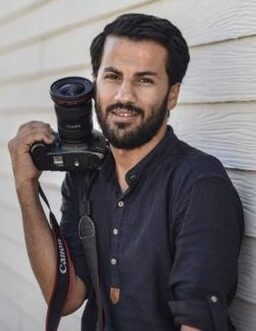 In announcing the award for photojournalism, the Polk committee said, the award for went to Samar Abu Elouf and Masoud (pictured) “of The New York Times for chronicling Israel’s bombardment and invasion of their homeland, Gaza. The two photographed the conflict from its opening hours on Oct. 7 until they escaped the territory exactly two months later. Under harrowing circumstances, they captured gripping and unforgettable images. Of frightened children looking skyward toward an Israeli plane. Of bodies pulled from the rubble of flattened buildings. Of a little boy touching the bloodied face of his dead baby sister. And of the chaos of hospitals overwhelmed by dazed, gravely injured patients.”
In announcing the award for photojournalism, the Polk committee said, the award for went to Samar Abu Elouf and Masoud (pictured) “of The New York Times for chronicling Israel’s bombardment and invasion of their homeland, Gaza. The two photographed the conflict from its opening hours on Oct. 7 until they escaped the territory exactly two months later. Under harrowing circumstances, they captured gripping and unforgettable images. Of frightened children looking skyward toward an Israeli plane. Of bodies pulled from the rubble of flattened buildings. Of a little boy touching the bloodied face of his dead baby sister. And of the chaos of hospitals overwhelmed by dazed, gravely injured patients.”
Other awardees include:
- For foreign reporting, “the staff of The New York Times for unsurpassed coverage of the war between Israel and Hamas. Times reporters used firsthand accounts to demonstrate how brutal and well planned the Hamas attack was and how vulnerable and ill prepared Israel had been to defend itself despite access to a 40-page Hamas battle plan. Then, relying on reports from longtime stringers in Gaza as well as imagery developed by its visual investigations team, the paper documented the unprecedented extent of the Israeli bombardment of Gaza and its impact on civilians.”
- Joshua Kaplan, Justin Elliott, Alex Mierjeski, Brett Murphy and the staff of ProPublica won the National Reporting award “for revealing secret, lavish and highly questionable gifts that U.S. Supreme Court Justice Clarence Thomas has received for decades from wealthy benefactors. The team also documented the court’s lack of any meaningful approach to policing ethical transgressions like those seemingly committed by Justice Thomas and by fellow Justice Samuel Alito, who accepted a free Alaskan fishing trip from a hedge fund magnate and failed to recuse himself from a case involving his patron.”
- For justice reporting, Brian Howey, “a freelance reporter whose exposé on a tawdry police practice was published by the Los Angeles Times and developed into a segment of a podcast by Reveal, The Center for Investigative Reporting. Howey, who began the project as a graduate student in the UC Berkeley Graduate School of Journalism’s Investigative Reporting Program, found that California police were engaged in a deceptive ruse, which is espoused by a private company that trains police officers.
“When an individual died at the hands of police, the investigators would interview the next of kin without telling them that their relative was dead until the end of the interview. Police agencies later used the negative information about the deceased they had gleaned from families to protect themselves from lawsuits.”

- Meribah Knight of WPLN Nashville, Ken Armstrong of ProPublica and Daniel Guillemette of Serial Productions, The New York Times, for a four-part podcast, “The Kids of Rutherford County,” “which chronicled the shockingly misguided approach to juvenile discipline by a domineering judge in one Tennessee county. For over a decade, the judge ordered and oversaw a system in which hundreds – likely thousands – of children were arrested and detained in violation of state law. Faced with widespread backlash following the reporting, the judge announced her retirement.
- For television reporting, to VICE News correspondent Julia Steers and producer Amel Guettatfi for “Inside Wagner,” “compelling on-the-ground coverage of Russian mercenaries on the Ukraine front and in the Central African Republic. After attempting to interview a witness to Wagner’s human rights abuses in the CAR, Ms. Steers and her crew were seized and held for several hours. Released, they remained for several more weeks before leaving the country. . . .”
On Friday, Peter White reported for Deadline that, “Beleaguered youth-skewing media company Vice is eliminating ‘several hundred positions’ and moving away from online news.”
-
Christopher Shell, Carnegie Endowment for International Peace: Is Biden’s Gaza Policy Alienating Black Voters?

Mascot for the Feb. 27 Journal-isms Roundtable on the state of the news industry (details). On Wednesday, Press Forward, the coalition investing more than $500 million to strengthen communities and local news, announced that 11 communities are joining its network of local chapters. They are in Colorado, Lancaster, Pa., Lexington, Ky., Mississippi, New Jersey, New Mexico, North Carolina, Pittsburgh, San Antonio, South Florida and Wyoming.
Layoffs Run Amok, but These Outlets Still on Top
“The media sector keeps taking it on the chin, with fresh rounds of layoffs landing in early 2024,” Sam Becker reported Friday for Fast Company. “In January alone, hundreds of jobs were cut at numerous outlets, as the media sector at large continues to contract across the spectrum.”
The turmoil has prompted a Journal-isms Roundtable this Tuesday, Feb. 27, on “Who will be next, and what are you going to do about it?,” a Zoom session to be simulcast at 7 p.m. Eastern on Facebook; and a list in the Fast Company story of the most recent layoffs. Compilations of the top U.S. newspapers by circulation; the top magazines; biggest paywalled news websites; and top radio podcasts among African Americans were in a few cases also prompted by the turmoil.
Some lists come with caveats.
Biggest paywalled news websites in the world:
- 1 – The New York Times Company: 9.4m
- 2 – The Wall Street Journal: 3.5m
- 3 – The Washington Post: 2.5m
- 4 – Gannett: 2m
- 5 – Substack: 2m
Top U.S. newspapers in print circulation
- 1. Wall Street Journal, News Corp, avg. circulation, 6 months to Sep 23: 555.2k
- 2. The New York Times, New York Times Co.: 267.6k
- 3. New York Post, News Corp: 131.2k
- 4. The Washington Post, Washington Post: 127.7k
- 5. USA Today, Gannett: 121.6k
Top 10 U.S. Magazine Media Brand Audiences for Q4 2023
- 1. People 99,878,000
- 2. Sports Illustrated 64,666,000
- 3. AARP the Magazine 56,048,000
- 4. Allrecipies 55,421,000
- 5. Good Housekeeping 53,176,000
Top 10 podcasts popular among Black listeners in the U.S.
- 1. The Joe Rogan Experience (Joe Rogan)
- 2. The Breakfast Club (The Black Effect Network)
- 3. Crime Junkie (audiochuck)
- 4. Drink Champs (Interval Presents)
- 5. Million Dollaz Worth of Game (Barstool Sports)
- Stuart Anderson-Davis, Columbia Journalism Review: “Pink Slime Journalism” and a history of media manipulation in America
- Josh Hersh, Columbia Journalism Review: Can Journalism Be Fun Again?
- Cameron Joseph, Columbia Journalism Review: The Death of the Washington Bureau (Jan. 26)
- Tyler Falk, Current: WAMU lays off staff, shuts down DCist (story lists some of those laid off)
- Amalie Nash, International News Media Association: It’s time to think more seriously about story formats (Journalists at Newsday take a six-week internal training course on alternative storytelling)
In a “Saturday Night Live” sketch, things turn around for a struggling man (Shane Gillis) when he’s gifted a pair of magical sneakers from Donald Trump. Fox News contributor Raymond Arroyo said the new shoe line was a way for Trump to connect with Black voters because “they love sneakers.” On MSNBC, contributor Michael Steele, a former Republican National Committee chair, responded to Arroyo’s comment with, “Somebody said the quiet part out loud on what the big sneaker strategy is really all about.” (Credit: YouTube)
Biden: Some in Press Say They’ll Leave if Trump Wins
“As he spoke at a Bay Area fundraiser today, Joe Biden spotted Katie Couric among the attendees,” Ted Johnson reported Thursday for Deadline.
“Two of your former colleagues, not at the same network, personally told me if he wins, they will have to leave the country because he’s threatened to put them in jail,” Biden said, referring to Donald Trump, Johnson wrote, quoting a pool report.
Couric’s television colleagues have some basis for their fear.
Oliver Darcy reported Dec. 7 for CNN, “In a particularly disturbing conversation this week, Trump’s former top political strategist, Steve Bannon, and former National Security Council adviser, Kash Patel, openly discussed plans to target the press.
“Bannon, who underscored that such promises are ‘not just rhetoric’ and that they are ‘absolutely dead serious’ about seeking revenge against journalists, asked Patel, who would likely serve in a second Trump administration, whether he could ‘deliver the goods.’ Patel responded affirmatively, vowing that a re-empowered Trump would indeed ‘come after’ the press.
“Bannon did not respond to requests for comment on Wednesday and a spokesperson for Patel claimed he was only referring to targeting journalists ‘who break the law.’ Regardless, Trump has himself said he will target news organizations, including most recently lashing out at Comcast over NBCU News Group’s coverage of him, saying the company should be ‘investigated.’ ”
On Biden’s remarks to Couric, Trump campaign spokesman Steve Cheung said in a statement, “Just another example of journalists who have overinflated egos making themselves the center of attention because they have hyperactive imaginations.“
Separately, Leah Donnella, writing Feb. 16 for NPR’s “Code Switch,” said the focus on Biden’s and Trump’s ages can “have consequences outside of our immediate political circumstances.
“As it turns out, fixating on someone’s age can actually put them at higher risk for exhibiting negative behaviors associated with that age. It’s called stereotype threat.
“For instance, when people are told that members of their age group are likely to struggle with things like memory and word recall, they perform worse on memory tests than people who are primed with information about the vast cognitive capabilities of people their age. Similar studies have been done with gender, race, and many other categories, and guess what? Being told you’re going to be bad at something is a remarkably consistent self-fulfilling prophecy. . . .”
- Matt Brown, Associated Press: Trump says his criminal indictments boosted his appeal to Black voters
- David Jackson, USA Today: Trump says Black voters relate to criminal prosecutions, prefer the ‘white guy’ to Obama
Short Takes

- “If Mayor Brandon Johnson (pictured) even had a honeymoon with the news media, it’s over after less than 10 months in office,” Fran Spielman wrote Tuesday for the Chicago Sun-Times. “The City Hall press corps has turned hostile, openly frustrated with a mayor who is seldom accessible and evasive when he does take questions. Newspaper editorials are critical and, at times, disdainful while portraying Johnson as in over his head. . . . In an apparent effort to turn things around, Johnson scheduled a meeting with the Chicago Sun-Times editorial board this week that would have been his first. But Monday’s meeting ended abruptly — after Johnson and board members had introduced themselves — when press secretary Ronnie Reese insisted the entire session be off the record . . .
 “A long-awaited documentary about Wendy Williams (pictured) is set to air on Saturday, despite an apparent attempt by the former TV host’s guardian to block A+E Television Networks from releasing the project,” Giana Levy wrote Saturday for the Grio. “The lawsuit seeking a temporary restraining order on ‘Where is Wendy Williams?’ was filed under seal on Thursday by Sabrina Morrissey, who said she was ‘acting in her capacity as temporary guardian’ for Williams, TMZ reported. . . .The two-part Lifetime documentary delves into the health status and whereabouts of Williams, whose team revealed on Thursday that she was diagnosed with primary progressive aphasia and frontotemporal dementia. . . .”
“A long-awaited documentary about Wendy Williams (pictured) is set to air on Saturday, despite an apparent attempt by the former TV host’s guardian to block A+E Television Networks from releasing the project,” Giana Levy wrote Saturday for the Grio. “The lawsuit seeking a temporary restraining order on ‘Where is Wendy Williams?’ was filed under seal on Thursday by Sabrina Morrissey, who said she was ‘acting in her capacity as temporary guardian’ for Williams, TMZ reported. . . .The two-part Lifetime documentary delves into the health status and whereabouts of Williams, whose team revealed on Thursday that she was diagnosed with primary progressive aphasia and frontotemporal dementia. . . .”
- “Today, a vote by the Federal Communications Commission took one step closer to facing the reality that employment diversity in media, specifically the broadcast media, needs change and improvement,” Sara Cederberg reported Thursday for the United Church of Christ Media Justice Ministry. “After 20 years of delay and avoidance, the FCC voted to comply with the law, and collect equal employment data from broadcasters. In response, Cheryl A. Leanza, UCC Media Justice’s policy advisor said, “this is a tremendous achievement and a practical, common sense solution. The FCC voted to collect and release data as required by law, not impose any additional rule or obligations. Sometimes sunlight is the best disinfectant.”
- “Last week, South Carolina State students conducted a silent protest during a board of trustees meeting over concerns about the school eliminating specific majors,” Wynton Jackson wrote Feb. 5 on clutchpoints.com. “In December, the South Carolina State board of trustees broached the topic of erasing bachelor’s degrees in history, art education, social studies, special education, and professional land surveying. The board cited low enrollment rates for those majors as their main reason, according to The Post and Courier.”
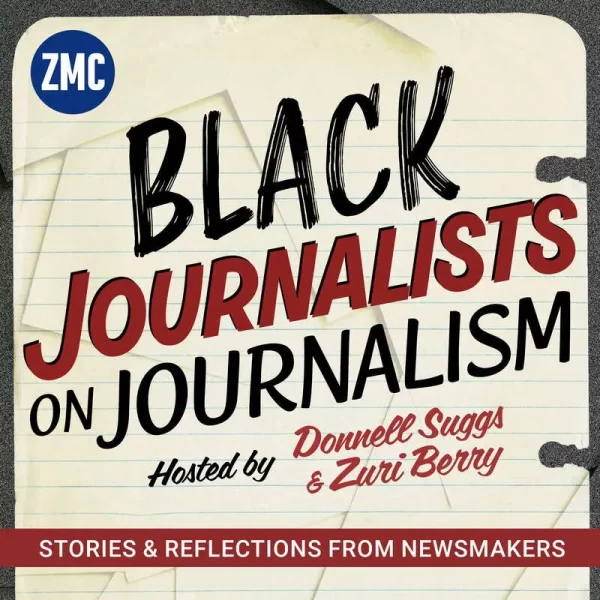
- The blurb for the new podcast, “Black Journalists on Journalism,” asks, “Have you ever wondered who that Black journalist was behind the story you were reading? Or who was that Black face you saw on TV? Or that Black voice you heard on the radio? Maybe you wanted to know more about them? If so, you’re just like us. Get to know the Black journalists behind the stories and organizations we’re all reading, watching, and listening to. Hosted by Donnell Suggs, the editor-in-chief of The Atlanta Voice, and Zuri Berry, the owner and principal producer of ZMC Podcasts.”
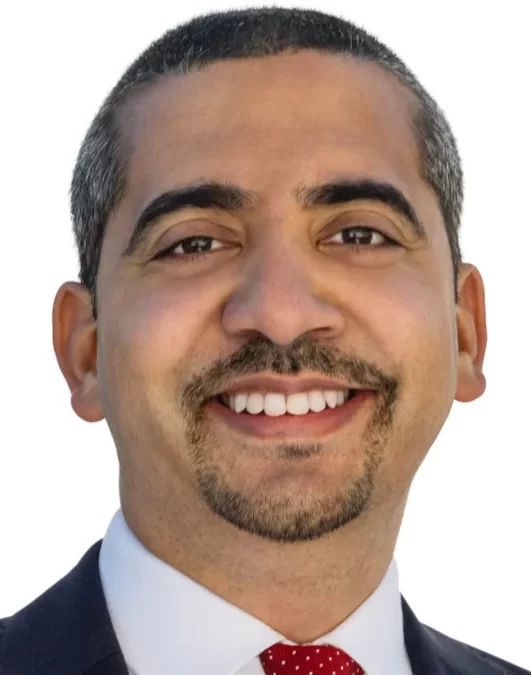 “The progressive pundit Mehdi Hasan (pictured) is joining The Guardian following his abrupt departure from MSNBC,” Max Tani reported Wednesday for Semafor. “The Guardian US on Wednesday said that Hasan would join the news organization as a regular columnist, publishing his first column on Wednesday calling for President Joe Biden to pressure the Israeli government to ‘end this genocide’ of Palestinians in Gaza. . . .”
“The progressive pundit Mehdi Hasan (pictured) is joining The Guardian following his abrupt departure from MSNBC,” Max Tani reported Wednesday for Semafor. “The Guardian US on Wednesday said that Hasan would join the news organization as a regular columnist, publishing his first column on Wednesday calling for President Joe Biden to pressure the Israeli government to ‘end this genocide’ of Palestinians in Gaza. . . .”
- “Jordan Green reports on extremists for the news website Raw Story, where his stories have included alleged neo-Nazis joining the U.S. military or protesting at drag shows,” Will Sommer reported Tuesday for the Washington Post. “For the past few months, he has worked on an investigation into a teenage gang that local police had linked to a spate of racist vandalism, including a brick attack on a Jewish center in Pensacola, Fla. As Green prepared to publish his story, neo-Nazis came to his house. . . .”
- “A nightly KGW-TV program accidentally aired a racist image Thursday during a live program that broadcasts photographs submitted by the public on social media, the news station said in an apology Friday,” Shane Dixon Kavanaugh reported Feb. 16, updated Feb. 20, for The Oregonian. The National Association of Black Journalists said Feb. 19, “It is disheartening that a viewer submitted such an offensive image, but equally troubling is the failure of KGW-TV’s screening process to prevent it from being broadcast. Despite the station’s claim of having a rigorous content screening policy, this incident highlights a severe breakdown in its procedures.” NABJ called for a meeting. Oregonian Editor Therese Bottomly wrote Sunday, “It wasn’t just use of the slur that was so painful, but the fact someone would purposely upload the image onto a local television station’s Facebook page.”
 Aparna Mukherjee (pictured), who was chief program officer at Resolve Philly, where she ran the solutions nonprofit’s newsroom, was to start Feb. 20 as executive director of the Society of Environmental Journalists, Luke Runyon, president of SEJ’s board of directors, announced Tuesday. “I cannot overstate the importance of environmental journalism, and climate reporting, specifically, in this moment of global change and climate crises,” Mukherjee said in the announcement. The daughter of Indian immigrants, she succeeds Meaghan Parker, who served as SEJ’s executive director from September 2018 to December 2023.
Aparna Mukherjee (pictured), who was chief program officer at Resolve Philly, where she ran the solutions nonprofit’s newsroom, was to start Feb. 20 as executive director of the Society of Environmental Journalists, Luke Runyon, president of SEJ’s board of directors, announced Tuesday. “I cannot overstate the importance of environmental journalism, and climate reporting, specifically, in this moment of global change and climate crises,” Mukherjee said in the announcement. The daughter of Indian immigrants, she succeeds Meaghan Parker, who served as SEJ’s executive director from September 2018 to December 2023.

- “WTTW’s Firsthand initiative launched a new documentary series Monday that focuses on homelessness in Chicago,” Weslan Hansen reported Wednesday for Current. “The series follows five people from different backgrounds who are experiencing homelessness, documenting their daily lives and telling their stories in their own words. . . . As with earlier installments of Firsthand, the multiplatform initiative aims to create programs, news coverage and events that help to humanize a specific social issue in the community, said Dan Protess, co-executive producer. . . .”
- “As language barriers persist in 2024, New Jersey’s translation collaboration may inspire you,” Ernesto Aguilar wrote Feb. 16 for OIGO. “Initiated as a pilot serving a few partners, the program now engages 12 outlets in bringing hundreds of locally resonant stories to Spanish-language readers in the state. . . .”
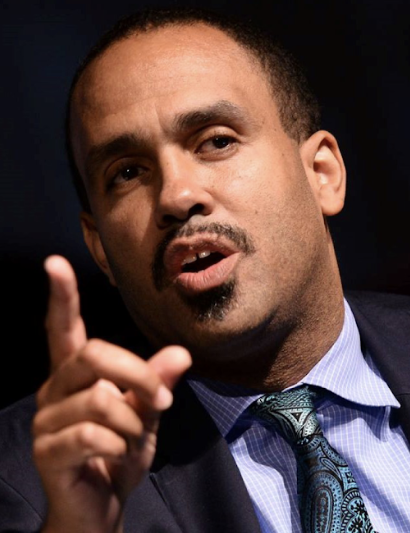 The Joint Center for Political and Economic Studies, whose history includes service as a go-to source for journalists reporting on Black politics and economics, has named Dedrick Asante-Muhammad (pictured) as its next president. Asante-Muhammad, who was the vice president of Racial Economic Equity and Research at the National Community Reinvestment Coalition, succeeds Spencer Overton, who served as president for 10 years before stepping down June 14, 2023. “Jessica Fulton, vice president, Policy, was named interim president June 14. She will remain in this position until March 11 and then will reassume her responsibilities as vice president, Policy.”
The Joint Center for Political and Economic Studies, whose history includes service as a go-to source for journalists reporting on Black politics and economics, has named Dedrick Asante-Muhammad (pictured) as its next president. Asante-Muhammad, who was the vice president of Racial Economic Equity and Research at the National Community Reinvestment Coalition, succeeds Spencer Overton, who served as president for 10 years before stepping down June 14, 2023. “Jessica Fulton, vice president, Policy, was named interim president June 14. She will remain in this position until March 11 and then will reassume her responsibilities as vice president, Policy.”
- Sherrilyn Ifill, former president of the NAACP Legal Defense Fund now teaching at Howard University, asks on Threads, “[Lenard] McKelvey’s (aka[‘Charlamagne’]) turn on ABC’s Sunday morning news demonstrates how unserious we allow commentators to be when the focus is young Black voters. Young Black ppl want substantive conversations about policies & outcomes in their lives. ‘Main character energy’? This is not Entertainment Tonight. It disrespects young Black voters to encourage this shallow talk by platforming someone so unserious who has no analysis of the stakes for young Black ppl in the outcome of this election.” Charlamagne was on ABC’s “This Week.”
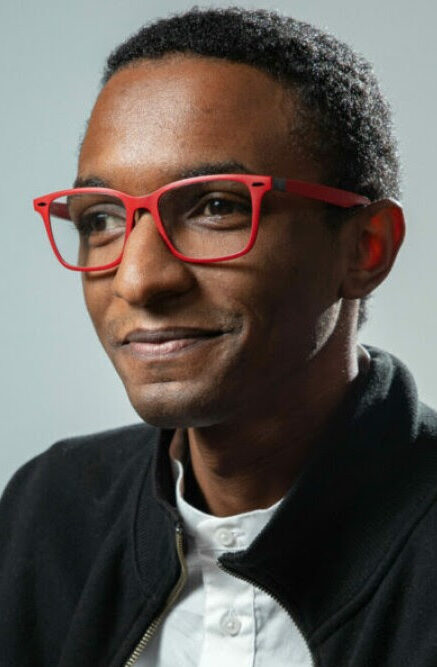 Travis Pope (pictured), most recently the station manager at Marfa Public Radio in west Texas, has been named president and general manager at WBOI in Fort Wayne, Ind. “Prior to Marfa, Pope served as a program director at Virginia’s Home For Public Media in Richmond, where he helped convert the station’s operations to a modernized, digital approach,” according to a Feb. 15 announcement.
Travis Pope (pictured), most recently the station manager at Marfa Public Radio in west Texas, has been named president and general manager at WBOI in Fort Wayne, Ind. “Prior to Marfa, Pope served as a program director at Virginia’s Home For Public Media in Richmond, where he helped convert the station’s operations to a modernized, digital approach,” according to a Feb. 15 announcement.
- “To date, at least 11 media workers have been killed in the line of duty while 34 more have suffered injuries while covering the invasion. The number of direct attacks on journalists covering the war dropped in 2023 as military activity became centered around fixed lines, however journalists on the front lines continue to face great risks,” the International Press Institute reported in commemorating the second anniversary of Russia’s invasion of Ukraine. “At least 12 journalists were injured in 2023 while covering the war.” IPI’s Nastya Stanko reported Thursday in a separate story, “There are no more Ukrainian media outlets in the territories captured by Russia. There are still some individual journalists in the occupation zone who run anonymous pro-Ukrainian Telegram channels, and they are constantly being hunted. . . .”
- “This year’s celebration of the 100-plus years of radio offers us an opportunity, as African media scholars, to reflect on the historical significance, cultural relevance, political power and social impact of the medium on the continent,” African academicians Sisanda Nkoala, Jacinta Mwende, Christina Chan-Meetoo, Marissa J. Moorman, Modestus Fosu and Stanley Tsarwe wrote Feb. 12 for the Conversation Africa. They also wrote, “In contrast to many western countries, where there has been a shift towards streaming and podcasts, traditional radio continues to be widely embraced in Africa. Because of poor literacy levels and uneven access to the internet and technological infrastructure, old-fashioned radio remains a reliable and inclusive medium. . . .”
- “Mexico’s freedom of information body INAI said on Thursday it was initiating an investigation after the country’s president disclosed the phone number of a New York Times journalist looking into alleged ties between his allies and drug cartels,” Raul Cortes Fernandez, Ana Isabel Martinez and Anthony Esposito reported Thursday for Reuters. “The disclosure took place during President Andres Manuel Lopez Obrador’s daily news conference. . . .”
- “The Mozambican chapter of the regional press freedom body MISA (Media Institute of Southern Africa) has “noted with great concern the emergence of another wave of threats against journalists dedicated to the independent coverage of the conflict in Cabo Delgado‘,” the Mozambique Information Agency reported Tuesday. “The most menacing of these threats came from the Cabo Delgado provincial governor, Valige Tauabo, who has accused journalists of working in agreement with the islamist terrorists active in the province. . . .”
- MISA Malawi, registered as the National Media Institute of Southern Africa, “says it is concerned with the seizure of mobile phones and laptops belonging to Malawi Broadcasting Corporation (MBC) journalists who are being suspected of running a fake MBC Facebook page,” Malawi’s Nyasa Times reported Feb. 14.
- “Journalists have come out in defence of their colleagues who are under attack from the military and controversial moneybag Wicknell Chivhayo over two articles they have been investigating,” New Zimbabwe reported on Thursday. “NewsHawks News Editor Owen Gagare is reportedly under constant surveillance by Zimbabwe National Army (ZNA) operatives, some of whom have openly threatened him following the release of an explosive report on corruption that involves three top generals.” The Zimbabwe Union of Journalists said it “unequivocally expresses complete displeasure at such criminal acts meant to cow and gag journalists and the media from freely executing their role of informing the nation and holding authority to account.”
- The International Press Institute Monday said it was calling on “the authorities in Kwara State, Nigeria to stop using Nigeria’s Cybercrimes Act and the penal code to target journalists and undermine media freedom. Earlier this month, on February 6, four journalists from the online news site Informant247 – Adisa-Jaji Azeez, Salihu Ayatullahi, Salihu Shola Taofeek, and Abdulrahman Taye Damilola – were recently arrested, detained, and charged with conspiracy, cyberstalking, and defamation. . . .”
 “Myat Thu Tun (pictured) is the fifth Myanmar journalist to be killed by the junta since the coup d’état in February 2021,” Reporters Without Borders said Friday. “His body was recently found buried, riddled with bullets and marked by signs of torture. Reporters Without Borders (RSF) calls on the international community to take action to force the junta to stop this massacre. . . .”
“Myat Thu Tun (pictured) is the fifth Myanmar journalist to be killed by the junta since the coup d’état in February 2021,” Reporters Without Borders said Friday. “His body was recently found buried, riddled with bullets and marked by signs of torture. Reporters Without Borders (RSF) calls on the international community to take action to force the junta to stop this massacre. . . .”
To subscribe at no cost, please send an email to journal-isms+subscribe@groups.io and say who you are.
Facebook users: “Like” “Richard Prince’s Journal-isms” on Facebook.
Follow Richard Prince on Twitter @princeeditor
Richard Prince’s Journal-isms originates from Washington. It began in print before most of us knew what the internet was, and it would like to be referred to as a “column.” Any views expressed in the column are those of the person or organization quoted and not those of any other entity. Send tips, comments and concerns to Richard Prince at journal-isms+owner@
View previous columns (after Feb. 13, 2016).
View previous columns (before Feb. 13, 2016)
- Diversity’s Greatest Hits, 2018 (Jan. 4, 2019)
- Book Notes: Is Taking a Knee Really All That? (Dec. 20, 2018)
- Book Notes: Challenging ’45’ and Proudly Telling the Story (Dec. 18, 2018)
- Book Notes: Get Down With the Legends! (Dec. 11, 2018)
- Journalist Richard Prince w/Joe Madison (Sirius XM, April 18, 2018) (podcast)
- Richard Prince (journalist) (Wikipedia entry)
- February 2018 Podcast: Richard “Dick” Prince on the need for newsroom diversity (Gabriel Greschler, Student Press Law Center, Feb. 26, 2018)
- Diversity’s Greatest Hits, 2017 — Where Will They Take Us in the Year Ahead?
- Book Notes: Best Sellers, Uncovered Treasures, Overlooked History (Dec. 19, 2017)
- An advocate for diversity in the media is still pressing for representation, (Courtland Milloy, Washington Post, Nov. 28, 2017)
- Morgan Global Journalism Review: Journal-isms Journeys On (Aug. 31, 2017)
- Diversity’s Greatest Hits, 2016
- Book Notes: 16 Writers Dish About ‘Chelle,’ the First Lady
- Book Notes: From Coretta to Barack, and in Search of the Godfather
- Journal-isms’ Richard Prince Wants Your Ideas (FishbowlDC, Feb. 26, 2016)
- “JOURNAL-ISMS” IS LATEST TO BEAR BRUNT OF INDUSTRY’S ECONOMIC WOES (Feb. 19, 2016)
- Richard Prince with Charlayne Hunter-Gault, “PBS NewsHour,” “What stagnant diversity means for America’s newsrooms” (Dec. 15, 2015)
- Book Notes: Journalists Follow Their Passions
- Book Notes: Journalists Who Rocked Their World
- Book Notes: Hands Up! Read This!
- Book Notes: New Cosby Bio Looks Like a Best-Seller
- Journo-diversity advocate turns attention to Ezra Klein project (Erik Wemple, Washington Post, March 5, 2014)

